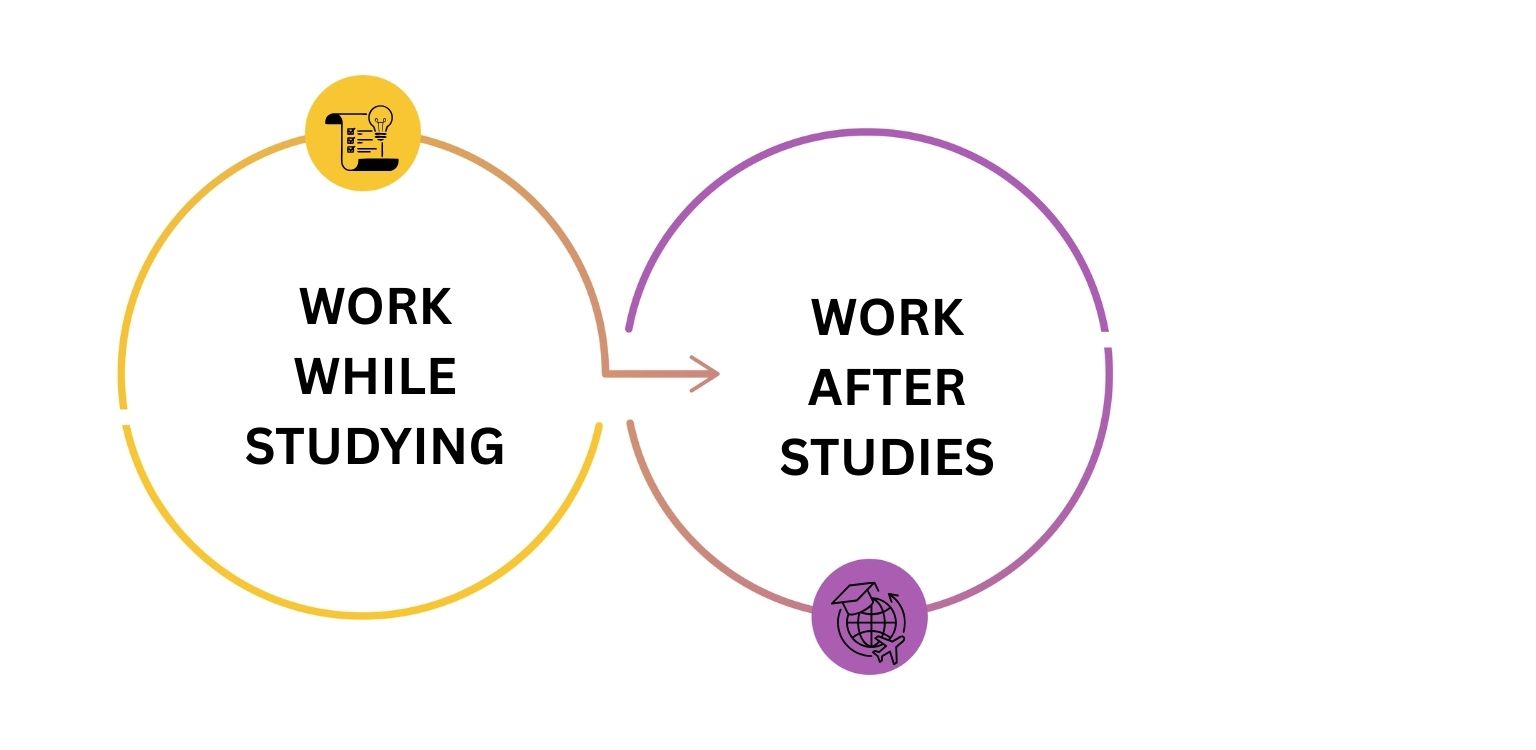Canada is home to many top-notch universities and colleges with loads of programs for students with different interests. If you’re an international student here, get ready for a warm and inclusive atmosphere that celebrates different cultures.
Sure, studying is important, but there’s more to it – like figuring out work options, understanding living conditions, accommodations, and finances options. For Indian students eyeing a Master’s in Canada, it’s crucial to understand the nuances beyond academic excellence. So, besides hitting the books, make sure to explore these other aspects of studying in Canada too! MS Consultants like LilacBuds, specialize in Masters Abroad Consultancy assisting you in navigating this journey in Canada seamlessly.
In this blog, let’s explore what to expect when studying in Canada and how MS consultants can help you turn this dream into reality:
Education
Canada has a world-class education system, with universities and colleges that rank among the best in the world. Some of the best global universities in Canada are:
- University in Toronto, Toronto
- University of British Columbia, Vancouver
- McGill University, Montreal
- University of Alberta, Edmonton
- McMaster University, Hamilton
- Universite de Montreal, Montreal
- University of Calgary, Calgary
These Canadian institutions offer a wide range of master’s programs to choose from, so you can find the perfect one to match your interests and career goals.
Some of the top Masters programs in Canada are:
- Master of Business Administration (MBA)
- Master of Computer Science (MCS)
- Master of Engineering (MEng)
- Master of Public Health (MPH)
- Master of Finance (MFin)
- Master of Education (MEd)
The popularity of master’s programs in Canada can vary depending on the specific discipline and university. Research and choose a program that is a good fit for your interests and career goals.
Eligibility Criteria For MS in Canada
There are a few requirements that must be fulfilled to be eligible to pursue an MS in Canada. These vary depending on the specific university and the course chosen. The generic requirements include:
- Undergraduate Degree: An undergraduate degree from a recognized institution is mandatory for enrolling for MS in Canada. Top universities demand a minimum of 6.0 CGPA for admission.
- Language Test and GRE Scores: Students from non-English speaking countries must clear language proficiency tests including IELTS, PTE, TOEFL, CAEL, etc, with a good score. Some universities also require GMAT/GRE scores, especially for MBA, finance and MiM courses.
- Work Experience: Universities demand work experience, especially for top-level professional courses such as MBA. Check specific course eligibility to gain clarity on work experience requirements.
Cost of Studying Master’s in Canada
Listed below are the costs of popular programs across universities:
| University | Course | Fee |
| University of Toronto | Full-Time MBA | $67,530 |
| University of British Columbia, Vancouver | Master of Arts in Economics | $28,252 |
| McGill University, Montreal | Masters of Management in Finance | $16,715.95 |
| University of Calgary, Calgary | Executive MBA | $28,160.00 |
| McMaster University, Hamilton | MBA | $24,109.56 |
Scholarships for Master’s in Canada
Several scholarships are available for students to assist in managing education costs. Some of the popular scholarships include:
| Scholarship Name | Features |
| Canadian Commonwealth Scholarship and Fellowship Plan | Covers tuition fees, living expenses and travel for MS students. |
| Ontario Graduate Scholarship | Granted by the provincial government and valued at $15,000 per year. |
| University of Calgary Graduate Awards | The scholarship value ranges from $1,000 to $40,000 and covers different fields of study. |
| Trudeau Foundation Scholarships | Granted for a value of up to $60,000 for a maximum of 3 years. |
Importance of English or French language proficiency
If you’re planning to study in Canada, being good at English or French is important. These languages are super important there and can really boost your chances for jobs later on.
Canadian universities usually want proof that you’re good at these languages, and they use tests like IELTS, TOEFL, or PTE to check that. These tests look at how well you read, write, speak, and listen in English or French. Getting the scores they ask for means you’ll be able to talk and understand people better during your studies, and it opens up more job opportunities after you graduate.
Step-by-Step Student Visa Application Process
- Get accepted at a Canadian educational institution (DLI).
- Create an online account on IRCC’s website.
- Collect necessary documents: passport, financial proof, clean record proof, medical exam (if needed), and specified photos.
- Fulfill financial requirements with a Guaranteed Investment Certificate (GIC).
- Show language proficiency through tests like IELTS or TOEFL.
- Pay application fees covering processing and biometrics.
- Complete the online form, upload documents, and submit.
Finances
International students requiring financial assistance for studies in Canada have more than a few options to explore. It is important to estimate the cost of your education, start planning your finances early, and research all of your options.
- Scholarships and bursaries: Scholarships and bursaries are a great way to finance your studies in Canada, as they do not need to be repaid. There are a variety of scholarships and bursaries available, both from the Canadian government and from universities and colleges in Canada. Visit the website of the Canadian Bureau for International Education (CBIE) to know more.
- Student loans: Student loans can be a good option for international students who need to finance their studies in Canada. There are two types of student loans available: Government loans and Private loans. Government loans are usually cheaper with favorable repayment terms, but international students’ eligibility depends on their province. Private loans are costlier and have stricter terms but are an option for international students.
- Family sponsorship: If you have family members in Canada, they may be able to sponsor you to study in Canada. To learn more about family sponsorship, you can visit the website of the Canadian government.
- Work-study programs: Work-study programs allow international students to work part-time while they are studying. This is a great way to earn money to help cover the cost of your studies.
Working in Canada

Work While Studying
In Canada, many international students can work part-time while attending college or university. Some study programs include work experience as part of their curriculum. Students can apply for co-op placements or internships with valid study permits, and a letter from their learning institution. This way they get professional experience in their field before returning to their home country to start their career. However, it is required that co-op or internship involvement should be 50% or less of the total study program.
Canada offers numerous opportunities for international students to work on and off campus while pursuing their studies. When working off campus, International students are allowed to work up to 20 hours per week during the school year and full-time during the summer holidays.
Imp Note: Between November 15, 2022, and December 31, 2023, certain international students can work more than 20 hours per week off campus.
Work After Studies
Many graduates choose to stay and work in Canada after their studies. This can be a great way to earn money to help cover your living expenses and gain valuable work experience.
International students who have completed their education in Canada have several options for living and working in the country. Here’s what is required:
- Post-graduation work permit (PGWP): Graduates from select post-secondary institutions can obtain a temporary PGWP, allowing them to gain work experience in Canada. This experience can support their application for Canadian permanent residency. The provision to extend work permits for up to 18 months is available for graduates with recently expired or expiring PGWPs.
- Express Entry: Graduates with work experience can apply for permanent residency in Canada through Express Entry. Eligibility is determined based on factors like education, skills, work experience, and language proficiency.
- Provincial Nominee Program (PNP): Each province and territory in Canada has its own PNP with specific programs and requirements. Graduates seeking to live in a particular region may qualify for PNPs based on their education, skills, and work experience.
For detailed information about working in Canada, consult Immigration, Refugees and Citizenship Canada (IRCC).
At Canadian universities and colleges, there are awesome ways to boost your career while studying and later!
- Use career centers for resume help, interview tips, and career advice.
- Go to career fairs, workshops, and cultural events to up your job chances in Canada or anywhere.
- Check out online job boards and resources from your university for internships and job listings.
- Connect with alumni, professionals, and other students to grow your network and find job opportunities.
Accommodation
When you’re heading to Canada to study, sorting out where you’ll live is a big deal. Most universities have places to live right on campus, like dorms or shared apartments. But lots of students also find spots off-campus, renting apartments or sharing houses near the university. Either way, make sure to book in advance – super important!
Here are some tips on finding a place in different Canadian cities:
- Start your search for a place to live ASAP, especially if you want to live on campus or in popular areas.
- Look in local papers or community boards for places to rent, especially in smaller towns.
- Consider living with roommates – you can find them on social media or university groups – it saves a bunch of money.
- If you can, visit the neighborhoods you’re eyeing to see what they’re like and what’s around.
Important points that could be helpful for international students looking to study in Canada:
- Safety: Canadian cities are generally safe. Follow local laws for a hassle-free stay.
- Weather & Transport: Expect diverse climates across Canada; prep for winters. Cities offer public transit, rideshares, and options for getting a valid driver’s license.
- Healthcare: Canada has a robust healthcare system. Ensure suitable health insurance coverage while studying here.
Here’s the Next Step
When considering a master’s program in Canada, it is very important to think about your education goals, finances, and future work opportunities. Trust LilacBuds, the top masters abroad Consultancy to navigate this process with ease and effortlessly. With a proven track record of success for Indian students achieving their master’s dreams in Canada, we can guide you through this journey with confidence.
Contact us and take the first step to the exciting journey of studying in Canada and pursuing your dreams of a master’s degree abroad.
















